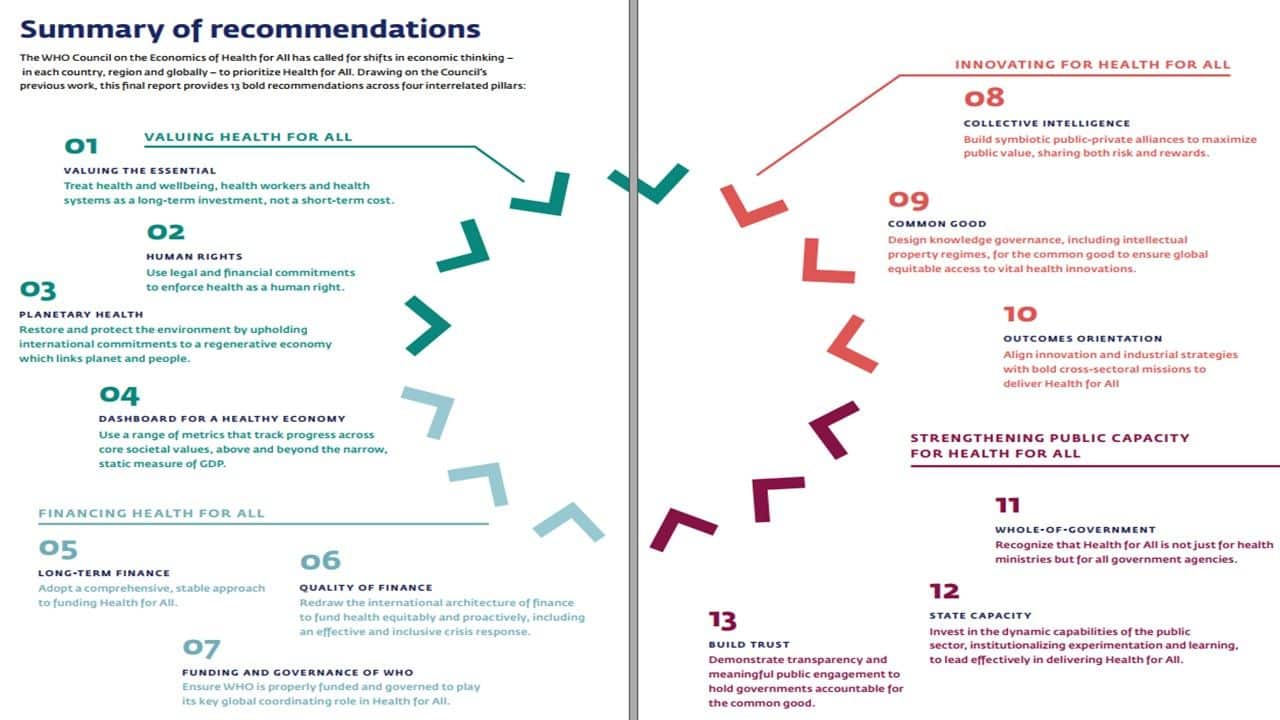Health for All: reorienting economy

Landmark report charts route for reorienting economies to deliver health for all
In the first-ever report, the WHO Council on the Economics of Health for All a bold new path to reorient economies to deliver what matters – health for all. Created two years ago and chaired by Professor Mariana Mazzucato, today proposes to rethink the economy from a health for all perspective, and pushing forcefully the principle that human and planetary health must be at the heart of how we design our social, health and economic systems and policies.
A bold new narrative sustain the proposal:
1 Value – valuing and measuring what matters through new economic metrics;
2 Finance – how to finance health for all as a long-term investment, not a short-term cost;
3 Innovation – how to advance health innovation for the common good;
4 Capacity – how to strengthen dynamic public sector capacity to achieve health for all.

A new framework built on the above four pillars, include Key recommendations :
A) We need to value and measure the things that truly matter – human and planetary flourishing – rather than pursuing economic growth and GDP maximization regardless of the consequences.
B) A fundamental overhaul of national and international systems for financing health is needed, so that spending on health is treated as a long-term investment.
C) Innovation requires collective intelligence—it is never the fruit of just one company or government agency. But unless innovation is governed for the common good, many people remain excluded from its benefits.
D) As the COVID-19 pandemic has made clear, the quality and capacity of government matters. Effective governments are not the smallest, but those that are well-designed and properly resourced, both financially and in terms of their people and infrastructure. Re-investing in government capacity is crucial to delivering Health for All.
The report also provides suggestions on what can be done in practice to implement the changes needed to reorient measures of economic value, the financing of health, innovation and building public sector capacity in the service of health for all. Among these, the report mentions several examples, including:
The mRNA technology hub in South Africa; Brazil’s public investment in a health-industrial complex for the common good; Regional development banks as enablers in the Global South; The Wellbeing Economy Alliance to transform economic systems in the service of life; Approaches to financing national action plans on antimicrobial resistance
The recommendations included in the report could change the way countries view and finance health. WHO calls on policy-makers, civil society, and members of the health and economics communities to give full consideration to the recommendations
https://lnkd.in/dzH6PvKZ




